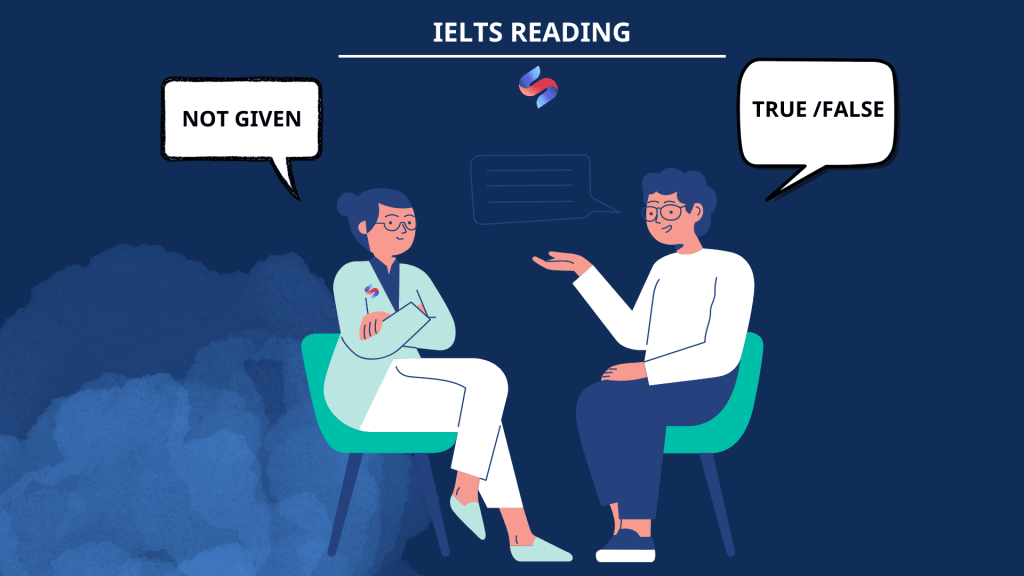Nâng cấp từ vựng – IELTS Vocab Booster 2 – Test 4- READING PASSAGE 3
EFFECTS OF NOISE

In general, it is plausible to suppose that we should prefer peace and quiet to noise. And yet most of us have had the experience of having to adjust to sleeping in the mountains or the countryside because it was initially ‘too quiet’, an experience that suggests that humans are capable of adapting to a wide range of noise levels. Research supports this view. For example, Glass and Singer (1972) exposed people to short bursts of very loud noise and then measured their ability to work out problems and their physiological reactions to the noise. The noise was quite disruptive at first, but after about four minutes the subjects were doing just as well on their tasks as control subjects who were not exposed to noise. Their physiological arousal also declined quickly to the same levels as those of the control subjects.
But there are limits to adaptation and loud noise becomes more troublesome if the person is required to concentrate on more than one task. For example, high noise levels interfered with the performance of subjects who were required to monitor three dials at a time, a task not unlike that of an aeroplane pilot or an air-traffic controller (Broadbent, 1957). Similarly, noise did not affect a subject’s ability to track a moving line with a steering wheel, but it did interfere with the subject’s ability to repeat numbers while tracking (Finkelman and Glass, 1970).
Probably the most significant finding from research on noise is that its predictability is more important than how loud it is. We are much more able to ‘tune out’ chronic background noise, even if it is quite loud, than to work under circumstances with unexpected intrusions of noise. In the Glass and Singer study, in which subjects were exposed to bursts of noise as they worked on a task, some subjects heard loud bursts and others heard soft bursts. For some subjects, the bursts were spaced exactly one minute apart (predictable noise); others heard the same amount of noise overall, but the bursts
| Unpredictable Noise | Predictable Noise | Average | |
| Loud noise | 40.1 | 31.8 | 35.9 |
| Soft noise | 36.7 | 27.4 | 32.1 |
| Average | 38.4 | 29.6 |
Table 1 : Proofreading Errors and Noise
occurred at random intervals (unpredictable noise). Subjects reported finding the predictable and unpredictable noise equally annoying, and all subjects performed at about the same level during the noise portion of the experiment. But the different noise conditions had quite different after-effects when the subjects were required to proofread written material under conditions of no noise. As shown in Table 1 the unpredictable noise produced more errors in the later proofreading task than predictable noise; and soft, unpredictable noise actually produced slightly more errors on this task than the loud, predictable noise.
Apparently, unpredictable noise produces more fatigue than predictable noise, but it takes a while for this fatigue to take its toll on performance.
Predictability is not the only variable that reduces or eliminates the negative effects of noise. Another is control. If the individual knows that he or she can control the noise, this seems to eliminate both its negative effects at the time and its after-effects. This is true even if the individual never actually exercises his or her option to turn the noise off (Glass and Singer, 1972). Just the knowledge that one has control is sufficient.
The studies discussed so far exposed people to noise for only short periods and only transient effects were studied. But the major worry about noisy environments is that living day after day with chronic noise may produce serious, lasting effects. One study, suggesting that this worry is a realistic one, compared elementary school pupils who attended schools near Los Angeles’s busiest airport with students who attended schools in quiet neighbourhoods (Cohen et al., 1980). It was found that children from the noisy schools had higher blood pressure and were more easily distracted than those who attended the quiet schools. Moreover, there was no evidence of adaptability to the noise. In fact, the longer the children had attended the noisy schools, the more distractible they became. The effects also seem to be long lasting. A follow-up study showed that children who were moved to less noisy classrooms still showed greater distractibility one year later than students who had always been in the quiet schools (Cohen et al, 1981). It should be noted that the two groups of children had been carefully matched by the investigators so that they were comparable in age, ethnicity, race, and social class.
- Giải thích từ vựng
- Giải thích từ vựng
- Plausible (a) /ˈplɔː.zə.bəl/ có vẻ hợp lý, có vẻ đúng (lời nói, lý lẽ)
Eg: Her story sounded perfectly plausible.
The only plausible explanation is that he forgot.
There was no way the story could be made to sound even remotely plausible.
- Adjust (v) /əˈdʒʌst/ điều chỉnh, chỉnh lý, làm cho thích hợp
Eg: If the chair is too high you can adjust it to suit you.
As a teacher you have to adjust your methods to suit the needs of slower children.
Một số từ đồng nghĩa:
- Change She’ll always be like that – you can’t change her.
- Alter We’ve had to alter our plans.
- Vary Try to vary the children’s diet a little.
- Convert We’re going to convert the spare bedroom into an office.
- Turn into There are plans to turn his latest book into a film.
- Transform The riverside area has been transformed into a shopping and sports complex.
- Capable (a) /ˈkeɪ.pə.bəl/ có thể, có khả năng
Eg: Only the Democratic Party is capable of running the country.
A force ten wind is capable of blowing the roofs off houses.
Collocation
- capable of sth/doing sth
- Burst (n) /bɜːst/ sự xuất hiện đột ngột/ sự bật lên, sự nổ ra, sự bùng lên
Eg: It’s usually quiet in the shop, but occasionally we have a sudden burst of activity.
Her breath was coming in short bursts.
- Work out (phrasal verb ) /wɜːk aʊt/ giải quyết, tìm ra
Eg: You can use a calculator to work out the solution.
She works out each scene on paper.
- Disruptive (a) /dɪsˈrʌp.tɪv/ gây ra sự gián đoạn, phá vỡ
Eg: His teacher described him as a noisy, disruptive influence in class.
The teacher said disruptive behavior would not be tolerated.
An absence of disruptive interpersonal issues makes for a healthier workspace.
disrupt (v)
- Arousal (n) /əˈraʊ.zəl/ sự tỉnh thức, sự thăng hoa (cảm xúc)
Eg: The intensity of a dream is a measure of emotional arousal.
Their success in the referendum depended on the arousal of voters’ fears.
- Troublesome (a) /ˈtrʌb.əl.səm/ rắc rối, rầy rà, phiền phức
Eg: Her hip has been troublesome for quite a while, and she’ll probably need surgery on it.
- Interfere with (phrasal verb) /ˌɪn.təˈfɪər/ gây trở ngại, quấy rầy
Eg: Even a little noise interferes with my concentration.
- Chronic (a) /ˈkrɒn.ɪk/ mãn tính, kinh niên, thành thói quen
Eg: She suffers from chronic pain in her knees.
Mr. George is resigning because of chronic heart disease.
Chronically (adv)
- Circumstance (n) /ˈsɜː.kəm.stɑːns/ hoàn cảnh, trường hợp, tình huống
Eg: I think she coped very well under the circumstances.
Obviously we can’t deal with the problem until we know all the circumstances.
- Unexpected (a) /ˌʌn.ɪkˈspek.tɪd/ không mong đợi, không ngờ, thình lình
Eg: Her resignation was completely unexpected.
How lovely to see you here – this really is an unexpected pleasure!
- Intrusion (n) /ɪnˈtruː.ʒən/ sự xâm nhập, sự xâm phạm
Eg: They complained that building a new airport nearby would be a noisy intrusion on their quiet lives.
They complained about excessive government intrusion into their legitimate activities.
- Random (a) /ˈræn.dəm/ ngẫu nhiên
Eg: We asked a random sample of people what they thought.
At random: tình cờ, ngẫu nhiên
The winning entry will be the first correct answer drawn at random.
- Interval (n) /ˈɪn.tə.vəl/ khoảng, khoảng cách, hồi, khoảng ngắt quãng
Eg: We see each other at regular intervals – usually about once a month.
The plants should be spaced at six-inch intervals.
- Proofread (v) /ˈpruːf.riːd/ đọc và sửa lỗi sai
Eg: Tondra proofreads books for a small publishing company.
- Fatigue (n) /fəˈtiːɡ/ sự mệt mỏi, sự mệt nhọc
Eg: The doctor said he was suffering from fatigue and work-related stress.
I was dropping with fatigue and could not keep my eyes open.
- Take its/their toll (on sth/sb) (n) gây thiệt hại, mất mát
Eg: The recession is taking its toll on small businesses.
- Variable (a) /ˈveə.ri.ə.bəl/ hay thay đổi; thay đổi, biến thiên
Eg: Our weather is very variable in the spring.
Returns are variable but can rise to as much as 9%.
- Eliminate (v) /iˈlɪm.ɪ.neɪt/ loại ra, loại trừ, khử
Eg: A move towards healthy eating could help eliminate heart disease.
Một số từ đồng nghĩa:
- Beat United beat City 3 – 2.
- Defeat Can Ireland defeat New Zealand in this high-stakes match?
- Conquer The Greeks had fought and conquered the army of Mardonius.
- Vanquish The superhero always vanquishes his foes and saves the world.
- Annihilate Modern superpowers succeed not by annihilating their enemies but by buying them off.
- Hammer The Colts got hammered by the Patriots.
- Transient (a) /ˈtræn.zi.ənt/ ngắn ngủi, nhất thời
Eg: A glass of whisky has only a transient warming effect.
Một số từ đồng nghĩa:
- Short He received a short jail sentence.
- Quick I need to make a quick phone call – I’ll be right back.
- Brief We had a brief chat this morning.
- Short and sweet The business meeting was short and sweet.
- Momentary It was just a momentary lapse in judgment – I won’t do it again.
- Distract (v) /dɪˈstrækt/ làm sao lãng, làm lãng đi, làm lãng trí
Eg: The teacher had to separate the two friends because they tend to distract each other in class.
Can you stop tapping your foot please – it’s distracting me while I’m working.
- Long lasting (a) /ˌlɔːŋ ˈlæstɪŋ/ kéo dài
Eg: Her work is certainly authoritative, and its influence and reputation will deservedly be long-lasting.
- Follow-up (a) /ˈfɒl.əʊ.ʌp/ tiếp tục, tiếp theo
Eg: Reporters can have one follow-up question.
- Intense (a) /ɪnˈtens/ mạnh, có cường độ lớn
Eg: He suddenly felt an intense pain in his back.
She learned that even intense emotional pain passes.
Một số từ đồng nghĩa:
- Strong I felt a strong urge to hug him.
- Powerful Anger is one of the most powerful human emotions.
- Fierce The people have a fierce pride in their country.
- Deep He suffered from a deep feeling of inadequacy.
- deep-seated He has a deep-seated loathing of snobbery.
- Manifest (v) /ˈmæn.ɪ.fest/ biểu lộ, biểu thị, bày tỏ, chứng tỏ
Eg: The workers chose to manifest their dissatisfaction in a series of strikes.
- Associate (v) /əˈsəʊ.si.eɪt/ kết giao, kết hợp, liên hợp, liên kết
Eg: Most people associate this brand with good quality.
Most people associate troglodytes with prehistoric times, but troglodyte communities still exist in Tunisia and China.
Collocation
- associate with sb/sth
- Arise (v) /əˈraɪz/ xuất hiện, nảy sinh ra, xảy ra, phát sinh ra
Eg: Should the opportunity arise, I’d love to go to China.
If any complications arise, let me know and I’ll help.
- High-pitched (a) /ˌhaɪˈpɪtʃt/ (âm thanh) cao, the thé
Eg: He talks to his dog in the most ridiculous high-pitched voice.
Một số từ đồng nghĩa :
- high She has a very high voice.
- Shrill He called the dog back with a shrill whistle.
- Reedy He had a thin, reedy voice.
- Capacity (n) /kəˈpæs.ə.ti/ năng lực khả năng; khả năng tiếp thu, khả năng thu nhận
Eg: She has a great capacity for hard work.
It seems to be beyond his capacity to follow simple instructions.
- Carry out (phrasal verb) /kær·i aʊt/ tiến hành, thực hiện
Eg: Dr Carter is carrying out research on early Christian art.
The study will be carried out over a six-month period.
- Luyện tập
Bài 1: Chọn từ trong khung để hoàn thành các câu bên dưới
| work out | carry out | high-pitched | adjust | variable |
| take | interfere with | follow-up | capacity | plausible |
- Can you …………………………………. what these squiggles mean?
- Emotional problems can seriously ………………………………… a student’s work.
- Stress can …………………………… a heavy toll on your health.
- The high rate of ……………………………… participation reduces the risk of bias due to selective attrition.
- Do you think it’s within his …………………………………. to do the job without making a mess of it?
- It is hoped that the kidnappers will not ……………………………… their threat to kill the hostages.
- She had a ……………………………….. giggle which irritated me intensely.
- Those who bought ……………………….. annuities a few years ago are already losing money on them.
- This explanation fits the facts and is psychologically ……………………………..
- With this drill it’s possible to …………………………………. the speed of rotation.
Bài 2: Chọn đáp án đúng để điền vào chỗ trống
- I think your plan is …………………………… of being improved. A. capable B. plausible
- There was a spontaneous ………………………….. of applause. A. burst B. arousal
- If this immigration regulation is deemed to be ………………………….. to the rest of the EU, controls on free movement could be re-imposed. A. troublesome B. disruptive
- Under no ………………………………….. should you approach the man. A. circumstances B. bursts
- The negotiations have proven more ……………………… than any of us expected. A. chronic B. troublesome
- The president made an …………………………… announcement this morning. A. unexpected B. intense
- They claim the noise from the new airport is an ………………………. on their lives. A. interval B. intrusion
- Depth of feeling can become equated with prejudice, and the ……………….. of emotions in schools can become indoctrination. A. arousal B. circumstance
- To my untutored eye that just looks like a load of ………………. brush strokes and yet it’s a very valuable painting. A. plausible B. random
- If there is a fire, the alarm will sound at 15-second ………………………….. A. capacities B. intervals
- There is a ………………………….. shortage of nursing staff. A. chronic B. variable
- I was asked to …………………………………… the website by the next day. A. eliminate B. proofread
- Tom began to feel ……………………………… and weakness once more. A. fatigue B. capacity
- An occasion may …………………… when you can use your knowledge of French. A. arise B. associate
- Lack of confidence in the company ………………. itself in a fall in the share price. A. distracted B. manifested
- The police ………………………….. him from their enquiries. A. eliminated B. proofread
- The ………………………. nature of the jobs market often conspires to force young people to stay at home. A. follow-up B. transient
- The President is under ………………………………. pressure to resign. A. intense B. high-pitched
- Both politicians have been closely ………………… with the movement for some time. A. manifested B. associated
- Sorry, what were you saying? Something outside the window ……………….. me. A. distracted B. eliminated
- The experience made an immediate and ……………………….. impression on me. A. long-lasting B. high-pitched
- LUYỆN TẬP
Bài 1:
1.work out 2. interfere with 3. take 4. follow-up 5. capacity
- carry out 7. high-pitched 8. variable 9. plausible 10. adjust
Bài 2:
1.A 2. A 3. B 4. A 5. B
- A 7. B 8. A 9. B 10. B
- A 12. B 13. A 14. A 15.B
- A 17. B 18. A 19. B 20. A
- A













